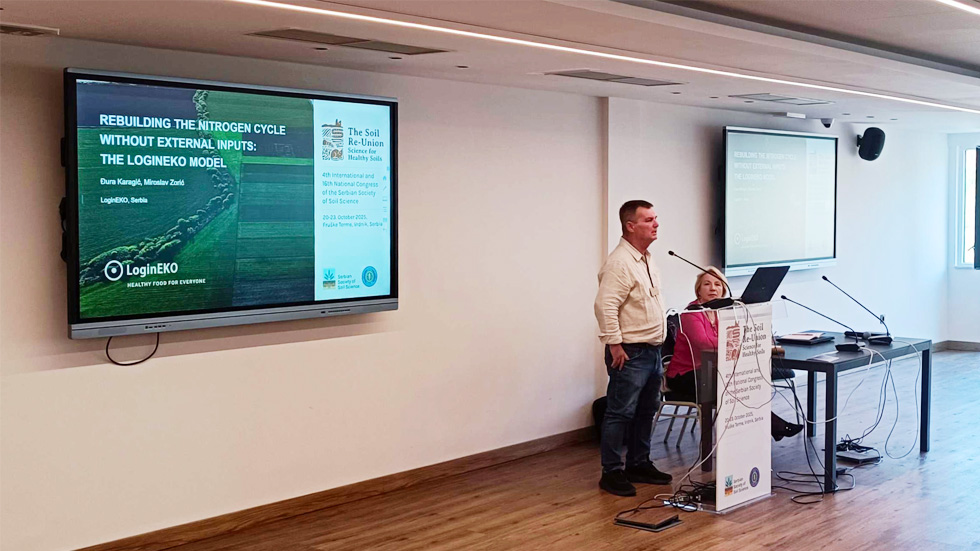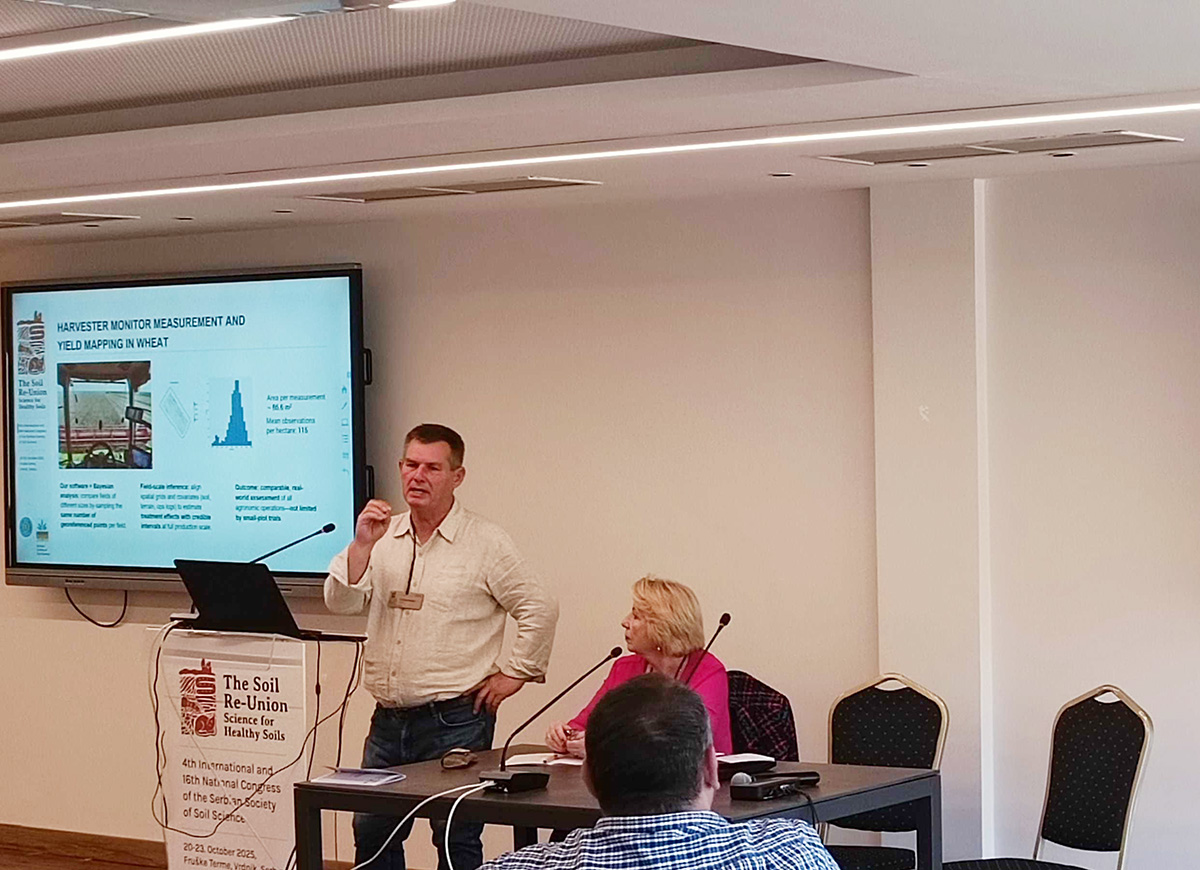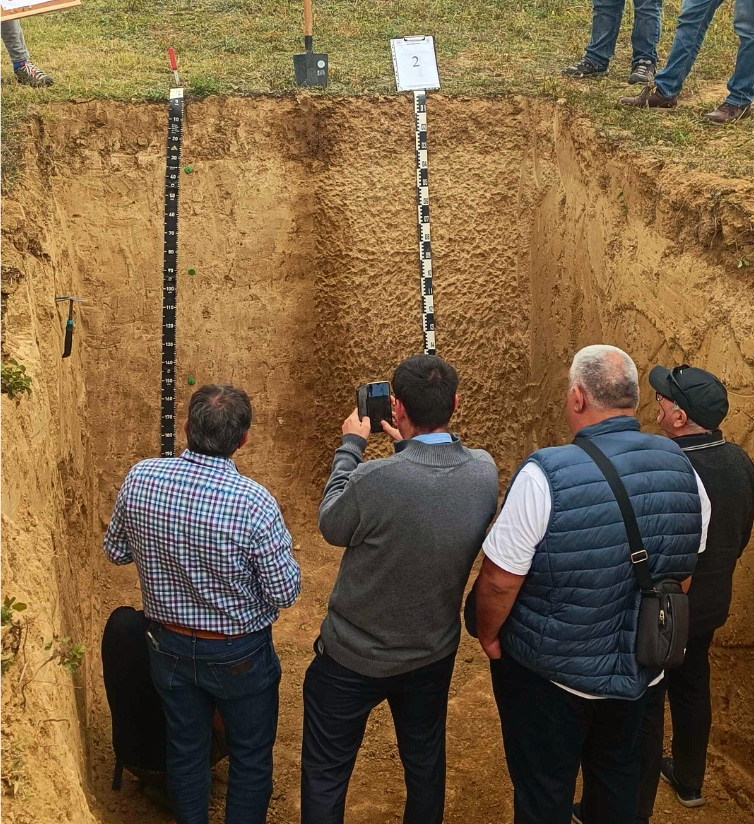2025 at LoginEKO: Building Large-Scale Organic Farming That Works
December 23, 2025A look back at 2025 at LoginEKO: large-scale organic farming results, plant-based nitrogen, open traceability, farming software, and food development.
Read articleOver 200 experts met in Serbia to share new ways to restore soil health. Here’s what we learned and why healthy soil matters for us all.

Last week in Vrdnik, surrounded by the forests of Fruška gora, we joined over 200 soil scientists, agronomists, and farmers from 15 countries for the Soil Re-Union Congress, a gathering built on a shared mission of studying and protecting the very foundation of our food system —the soil.
We took part in discussions on practical ways to strengthen soil health, from nutrient management to long-term soil resilience, and presented how legumes help us meet crop nitrogen needs naturally, forming the backbone of our large-scale, organic, sustainable farming model. Through legume-based rotations, we maintain soil fertility without synthetic fertilizers or manure. During our presentation, we showed how this works in practice and emphasized one guiding principle:
“Resilience comes from diversity and balance.”
Our crop rotations play a vital role in achieving this balance. Smartly planned and carefully balanced 5-year crop rotations are our greatest ally against weeds and the backbone of our organic weed control strategy. They help avoid legume fatigue, support soil biodiversity, and keep our land alive and productive season after season. And the results are visible: resilient crops and harvests that prove that when soil thrives, everything else follows.

Discussions at the congress confirmed what we already feel in the field every day. Healthy soil isn’t only a scientific concept; it’s a living system that connects food, climate, and life itself. It records everything we do, and reminds us that every harvest depends on the choices we make beneath the surface.
A highlight was the field trip to Fruška gora, where we explored open soil profiles showing 15 million years of geological history. Seeing that depth of time beneath our feet reminded us of the lasting impact even the smallest choices can make.

Among many insightful sessions, one that stood out was from Prof. Dr. Pandi Zdruli from CIHEAM Bari, who spoke about the EU’s initiative, Soil Deal for Europe, and the role the Western Balkans can play in restoring soil health across the region. It was a powerful reminder that we’re a part of something larger.
And just as the congress was coming to a close, the European Parliament passed the Soil Monitoring Law, laying the foundation for an EU-wide system to monitor and assess soil health, and a sign that soil is finally getting the attention we urgently need.
We left Vrdnik feeling grounded, encouraged, and grateful for the chance to connect with so many people with a shared purpose: to protect and restore the foundation of life itself.
A look back at 2025 at LoginEKO: large-scale organic farming results, plant-based nitrogen, open traceability, farming software, and food development.
Read articleThe Plant Food Summit 2025 brought together Europe’s food system leaders to discuss how plant-based innovation can drive a healthier, more resilient, and future-proof food system. Here’s how they’re turning ambition into action.
Read articleThe updated EAT-Lancet report calls for urgent transformation of the global food system. Here’s what we learned at the launch and how our work supports this change.
Read article